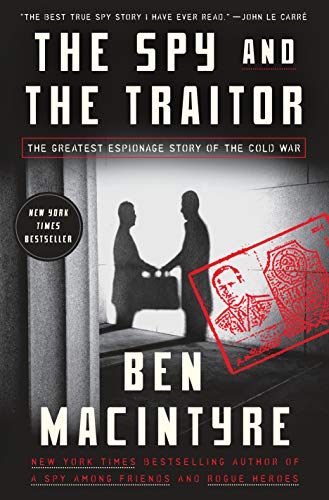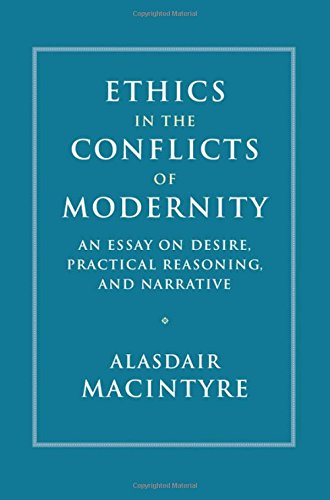Which is the best after virtue alasdair macintyre?
Finding your suitable after virtue alasdair macintyre is not easy. You may need consider between hundred or thousand products from many store. In this article, we make a short list of the best after virtue alasdair macintyre including detail information and customer reviews. Let’s find out which is your favorite one.
Best after virtue alasdair macintyre
1. After Virtue: A Study in Moral Theory, Third Edition
Feature
University of Notre Dame PressDescription
When After Virtue first appeared in 1981, it was recognized as a significant and potentially controversial critique of contemporary moral philosophy. Newsweek called it a stunning new study of ethics by one of the foremost moral philosophers in the English-speaking world. Since that time, the book has been translated into more than fifteen foreign languages and has sold over one hundred thousand copies. Now, twenty-five years later, the University of Notre Dame Press is pleased to release the third edition of After Virtue, which includes a new prologue After Virtue after a Quarter of a Century.
In this classic work, Alasdair MacIntyre examines the historical and conceptual roots of the idea of virtue, diagnoses the reasons for its absence in personal and public life, and offers a tentative proposal for its recovery. While the individual chapters are wide-ranging, once pieced together they comprise a penetrating and focused argument about the price of modernity. In the Third Edition prologue, MacIntyre revisits the central theses of the book and concludes that although he has learned a great deal and has supplemented and refined his theses and arguments in other works, he has as yet found no reason for abandoning the major contentions of this book. While he recognizes that his conception of human beings as virtuous or vicious needed not only a metaphysical but also a biological grounding, ultimately he remains committed to the thesis that it is only from the standpoint of a very different tradition, one whose beliefs and presuppositions were articulated in their classical form by Aristotle, that we can understand both the genesis and the predicament of moral modernity.
2. After Virtue: A Study in Moral Theory, Second Edition
Description
Discusses the nature of moral disagreement, Nietzsche, Aristotle, heroic societies, and the virtue of of justice3. After virtue: A study in moral theory
Description
"[I]t is something to have a book, devoted to certain quite central technical philosophical questions, which is likely to produce so passionate a response." New York Review of Books"A remarkable synthesis . . . ." Richard Rorty
"A stunning new study of ethics. . . ." Newsweek
"The best book of philosophy in years." John Gardner
"To call this a good book is to be patronizing; it is an important book, one that will have to be followed up or answered. It may be a great one, as are all turning points in a tide of drama whose protagonists have thought their courses inexorable." Choice, February 1982
When After Virtue first appeared in 1981, it was recognized at once as a significant and potentially controversial critique of contemporary moral philosophy. Now, in a new chapter, Alasdair MacIntyre responds to the questions and considerations raised by the many admirers and critics who made After Virtue such a widely read and discussed work of philosophy. Taking into account the dialogue generated by his book over the past three years, he elaborates his position on the relationship of philosophy to history, the virtues and the issue of relativism, and the relationship of moral philosophy to theology. In doing so, MacIntyre sustains the claims of his central conclusions to rational justification and demonstrates further the accountability of philosophy to the world and times it seeks to describe.
4. The Spy and the Traitor: The Greatest Espionage Story of the Cold War
Description
NEW YORK TIMES BESTSELLERThe best true spy story I have ever read.JOHN LE CARR
The celebrated author ofDouble CrossandRogue Heroesreturns with his greatest spy story yet, a thrillingAmericans-era tale of Oleg Gordievsky, the Russian whose secret work helped hasten the end of the Cold War.
If anyone could be considered a Russian counterpart to the infamous British double-agent Kim Philby, it was Oleg Gordievsky. The son of two KGB agents and the product of the best Soviet institutions, the savvy, sophisticated Gordievsky grew to see his nation's communism as both criminal and philistine. He took his first posting for Russian intelligence in 1968 and eventually became the Soviet Union's top man in London, but from 1973 on he was secretly working for MI6. For nearly a decade, as the Cold War reached its twilight, Gordievsky helped the West turn the tables on the KGB, exposing Russian spies and helping to foil countless intelligence plots, as the Soviet leadership grew increasingly paranoid at the United States's nuclear first-strike capabilities and brought the world closer to the brink of war. Desperate to keep the circle of trust close, MI6 never revealed Gordievsky's name to its counterparts in the CIA, which in turn grew obsessed with figuring out the identity of Britain's obviously top-level source. Their obsession ultimately doomed Gordievsky: the CIA officer assigned to identify him was none other than Aldrich Ames, the man who would become infamous for secretly spying for the Soviets.
Unfolding the delicious three-way gamesmanship between America, Britain, and the Soviet Union, and culminating in the gripping cinematic beat-by-beat of Gordievsky's nail-biting escape from Moscow in 1985, Ben Macintyre's latest may be his best yet. Like the greatest novels of John le Carr, it brings readers deep into a world of treachery and betrayal, where the lines bleed between the personal and the professional, and one man's hatred of communism had the power to change the future of nations.
5. Reading Alasdair MacIntyre's After Virtue
Feature
Bloomsbury Publishing PLCDescription
After Virtue is a watershed in MacIntyre's career. It follows his emergence from Marxism, but draws on Marxist sources and arguments. It precedes his move to Thomism, but already draws on Augustine and Aquinas. Because of its watershed nature, it has gained a wide readership in various fields but it treats a variety of issues in ways that are unfamiliar either to Marxists schooled in the social sciences or to Thomists schooled in medieval metaphysics.
Reading Alasdair MacIntyre's After Virtue provides a commentary that will be accessible to students, valuable to scholars, and useful to teachers. Students will find help to navigate the two main arguments of After Virtue, to understand its interpretation of history, and to engage its proposal for a form of ethics and politics that returns to the tradition of the virtues. Scholars will find the book useful as a general guide to MacIntyre's ethics. Teachers will find a book that can help to direct their students' reading and keep classroom discussions focused on the book's central concerns.
6. After Virtue: A Study in Moral Theory (Bloomsbury Revelations)
Feature
Bloomsbury AcademicDescription
After Virtue7. The Benedict Option: A Strategy for Christians in a Post-Christian Nation
Feature
The Benedict Option: A Strategy for Christians in a Post-Christian NationDescription
A NEW YORK TIMES BESTSELLER"Already the most discussed and most important religious book of the decade."David Brooks
In this controversial bestseller, Rod Dreher calls on American Christians to prepare for the coming Dark Age by embracing an ancient Christian way of life.
From the inside, American churches have been hollowed out by the departure of young people and by an insipid pseudoChristianity. From the outside, they are beset by challenges to religious liberty in a rapidly secularizing culture. Keeping Hillary Clinton out of the White House may have bought a brief reprieve from the states assault, but it will not stop the Wests slide into decadence and dissolution.
Rod Dreher argues that the way forward is actually the way backall the way to St. Benedict of Nursia. This sixth-century monk, horrified by the moral chaos following Romes fall, retreated to the forest and created a new way of life for Christians. He built enduring communities based on principles of order, hospitality, stability, and prayer. His spiritual centers of hope were strongholds of light throughout the Dark Ages, and saved not just Christianity but Western civilization.
Today, a new form of barbarism reigns. Many believers are blind to it, and their churches are too weak to resist. Politics offers little help in this spiritual crisis. What is needed is the Benedict Option, a strategy that draws on the authority of Scripture and the wisdom of the ancient church. The goal: to embrace exile from mainstream culture and construct a resilient counterculture.
The Benedict Optionis both manifesto and rallying cry for Christians who, if they are not to be conquered, must learn how to fight on culture war battlefields like none the West has seen for fifteen hundred years. It's for all mere ChristiansProtestant, Catholic, Orthodoxwho can read the signs of the times. Neither false optimism nor fatalistic despair will do. Only faith, hope, and love, embodied in a renewed church, can sustain believers in the dark age that has overtaken us. These are the days for building strong arks for the long journey across a sea of night.
8. Ethics in the Conflicts of Modernity: An Essay on Desire, Practical Reasoning, and Narrative
Feature
Cambridge University PressDescription
Alasdair MacIntyre explores some central philosophical, political and moral claims of modernity and argues that a proper understanding of human goods requires a rejection of these claims. In a wide-ranging discussion, he considers how normative and evaluative judgments are to be understood, how desire and practical reasoning are to be characterized, what it is to have adequate self-knowledge, and what part narrative plays in our understanding of human lives. He asks, further, what it would be to understand the modern condition from a neo-Aristotelian or Thomistic perspective, and argues that Thomistic Aristotelianism, informed by Marx's insights, provides us with resources for constructing a contemporary politics and ethics which both enable and require us to act against modernity from within modernity. This rich and important book builds on and advances MacIntyre's thinking in ethics and moral philosophy, and will be of great interest to readers in both fields.9. Sources of the Self: The Making of the Modern Identity
Feature
Used Book in Good ConditionDescription
In this extensive inquiry into the sources of modern selfhood, Charles Taylor demonstrates just how rich and precious those resources are. The modern turn to subjectivity, with its attendant rejection of an objective order of reason, has led--it seems to many--to mere subjectivism at the mildest and to sheer nihilism at the worst. Many critics believe that the modern order has no moral backbone and has proved corrosive to all that might foster human good. Taylor rejects this view. He argues that, properly understood, our modern notion of the self provides a framework that more than compensates for the abandonment of substantive notions of rationality.
The major insight of Sources of the Self is that modern subjectivity, in all its epistemological, aesthetic, and political ramifications, has its roots in ideas of human good. After first arguing that contemporary philosophers have ignored how self and good connect, the author defines the modern identity by describing its genesis. His effort to uncover and map our moral sources leads to novel interpretations of most of the figures and movements in the modern tradition. Taylor shows that the modern turn inward is not disastrous but is in fact the result of our long efforts to define and reach the good. At the heart of this definition he finds what he calls the affirmation of ordinary life, a value which has decisively if not completely replaced an older conception of reason as connected to a hierarchy based on birth and wealth. In telling the story of a revolution whose proponents have been Augustine, Montaigne, Luther, and a host of others, Taylor's goal is in part to make sure we do not lose sight of their goal and endanger all that has been achieved. Sources of the Self provides a decisive defense of the modern order and a sharp rebuff to its critics.












Recent Comments